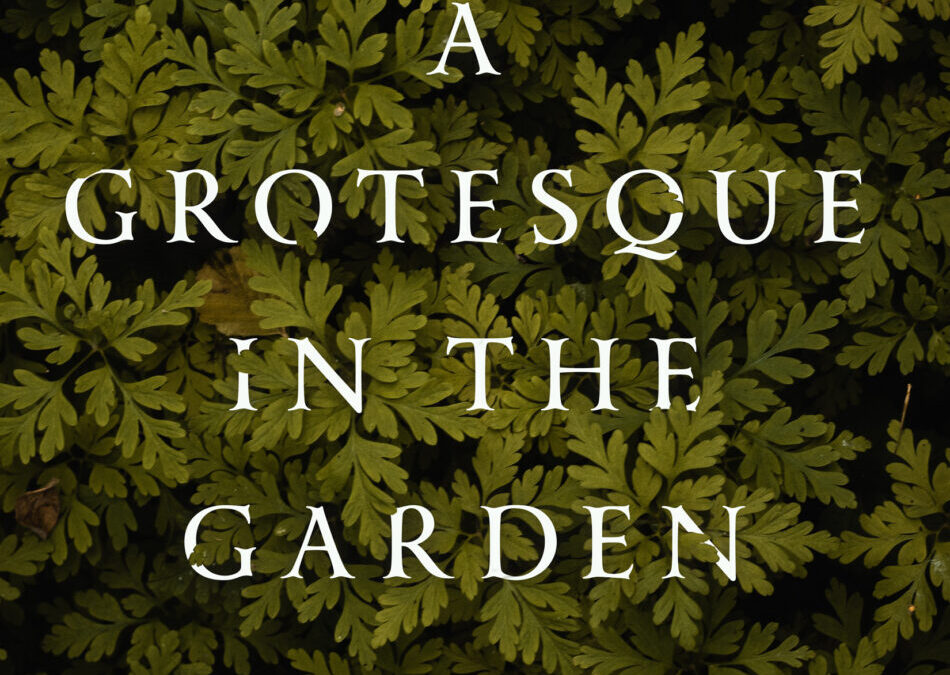After one of my best friends insisted that I read this book I finally picked it up and let’s just say he was not exaggerating with his praise for how wonderfully written and thought-provoking it is. “A Grotesque in the Garden” took me on a trip. If you like thinking through the deep, philosophical questions of life, as my best friend and I do, but don’t necessarily like to read the mind-twisting monologues of classic philosophical writings, A Grotesque in the Garden is just the right book for you. Hud Hudson, the author, brings together quite beautifully those hard questions we have all either thought about, and/or experienced in our everyday lives, and a fictional narrative that anyone could enjoy reading on a quiet Sunday afternoon.
The book centers around the narrative found in the first few chapters of the Hebrew Bible focusing on after the fall of humankind. Before we dive into the actual contents of the book allow me to set the stage so that we are all on the same page. The book of Genesis lays out how everything that we know in reality came to be, and that is of course that God created it. The Uncreated brought into being all of creation. This is described through a sequence of six days with the seventh and final day culminating in God resting, declaring what He made as good, and enjoying His work. From the plants to the stars, sea creatures, land animals, and humankind, God speaks it all into existence. God plants a garden in a place called Eden and assigns humankind to tend it, cultivate it and enjoy sweet communion with Him and creation. Everything was good, everything was in right relationship with each other, a beautiful balance of life and order, or so we thought. Chapter three of Genesis takes a turn for the worse as it introduces a serpent-like creature who has devious intentions.
This most shrewd serpent targets humankind and entices them to take what was intended to be given, intended to be received. This serpent is understood as being Satan, a fallen spiritual being who chose rebellion over fulfilling his role within the cosmos and did not want to go down alone. Satan, taking advantage of humankind’s ambition, tempted Adam and Eve to join him in his rebellion against God, and boy did it work. Their innocence is lost, and their relationship with God changes, God leads them out from the garden into the outer world, not allowing them back in. Here we have the setting for “A Grotesque in the Garden”, Adam and Eve outside of the garden and God placing Cherubim, an angel-like spiritual being who is to guard the way back into God’s garden. Hud Hudson takes this seemingly minor detail within the Genesis narrative and creates a most interesting tale as the framework for his book.
According to Hud Hudson, even immortal spiritual beings can have existential crises. The first character introduced is named Tesque, the very spiritual being charged to guard the way back into the garden, a character within the Biblical narrative I have never given a thought of. Tesque is contemplating leaving the garden he was to guard, contemplating topics like divinely permitted evil, divine silence and hiddenness, and divine deception, you know, the normal internal musings of immortal created beings living in a seemingly perfect garden of paradise. The other main character is named Naphil, a mathematics professor who is currently on a solitary retreat in Iceland. Naphil doesn’t like crowds, doesn’t really like relationship at all with her fellow humans to be frank. While on this retreat she befriends a dog, who she calls Joy, which is the other character in the book. Upon meeting Joy, Naphil describes her contempt for crowds with this quote, “Would that the whole world were populated with canines! If there were a button for that, I’d push it in a heartbeat.” Naphil, just like Tesque, is trying to work through these difficult questions that are interwoven in all of our lived experiences as we try to figure out what the heck is going on. What plays out between Tesque, Joy, and Naphil is a beautiful and raw depiction of the struggle between what we want to be the case and where we currently find ourselves.
Before I give too much away I want to mention that these monologues and dialogues of Tesque, Joy, and Naphil are not meant to be read, in my opinion, as final answers to these deep questions, but rather honest reflections of the reality that we live in. There is evil, there are times of loneliness, there are countless questions without answers, there is joy, there is laughter, there is peace, there is love. If you do decide to read “A Grotesque in the Garden,” try to allow yourself to let the questions and the trains of thought connected to those questions let them be what they are. Perhaps you can invite a friend to read the book with you and who knows, maybe beautiful conversations will flow.
Thank you for taking the time to read this book review, be sure to leave your comments below if you do read the book, I would love to hear what you thought of it!

The First Three Days Of Creation: A Way to Order Our Lives Part Three
Day 3: Dry land appears The primordial waters of the newly created world have been separated, and the space that has been revealed is called “Sky” in the Genesis account. We discussed previously that this space could be conceptualized as the constant space in our...

Introduction
A brief introduction to the blog.
No Results Found
The page you requested could not be found. Try refining your search, or use the navigation above to locate the post.

